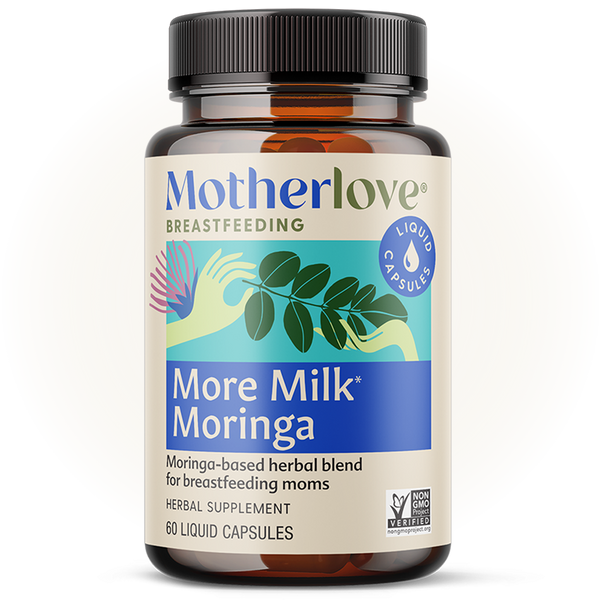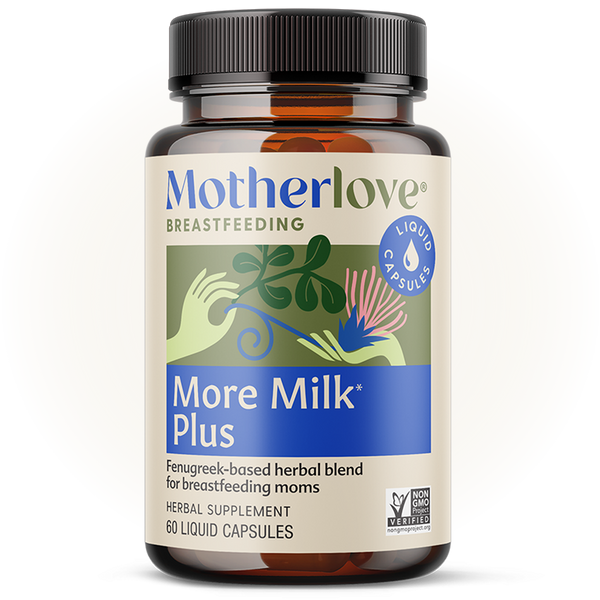Written by Wendy, IBCLC
Noticing a drop in milk supply over the holidays and not sure what’s going on? Many parents observe changes in their milk supply—or changes in their baby’s behavior during breastfeeding—over the holiday season. Let’s take a look at why this may be happening, what holiday ingredients (in food and in life!) may be contributing, and what to do about it.
ASSESS THE PROBLEM
Before we look at common culprits, it’s important to investigate the problem. Are you having a milk supply drop, and is it something that can be easily remedied?
Parents who are concerned about drops in milk supply might notice:
- That their breasts feel less full
- That their milk seems to be flowing less quickly, and their baby is gulping less audibly
- That their baby is breastfeeding less frequently
- That their baby seems fussy or frustrated at the breast
It’s important to understand that these things don’t necessarily mean that your milk supply has decreased or decreased significantly. Signs of concerning milk supply decreases would be if your baby is losing weight or isn’t wetting as many diapers as they used to. If you see or suspect that these things are going on, it’s always best to discuss this promptly with your baby’s pediatrician.
Still, sometimes signs like less breast fullness or a frustrated baby mean that your milk supply has temporarily decreased. This happens sometimes. The good news is that it’s usually easily remedied. Once you figure out what’s going on, it will usually take a few days to a week to bring your supply back up where it needs to be.
Let’s look at a few possible holiday ingredients that can impact milk supply.
FOOD INGREDIENTS THAT MAY DECREASE MILK SUPPLY
Here’s an essential fact: there really aren’t that many foods that significantly decrease milk supply. Even the ones that might have an impact have to be eating in large amounts to really do anything to your milk supply. Nevertheless, some foods—especially when consumed in large quantities—can impact milk supply. Here’s what to know.
PEPPERMINT
Some parents report that peppermint reduces their milk supply. Drinking mint tea is often suggested as a way to suppress lactation when sudden weaning is necessary. But there are no clinical trials to support this. Either way, drinking small amounts of mint tea or eating minty desserts will not likely impact your milk supply.
SAGE
Similar to peppermint, sage teas are often used to suppress milk supply or help in cases of oversupply. But there are clinical trials to support this. The evidence for sage’s role in milk supply decrease is anecdotal. Parents who report milk supply decreases are drinking large quantities of sage tea; small amounts should not have an impact.
ALCOHOL
Alcohol in and of itself doesn’t suppress your milk supply. However, there is some evidence that alcohol can impact your milk ejection reflex, which is what causes your milk to let down. As such, many parents find that when they drink alcohol, their milk doesn’t flow as readily as it usually does. But this varies, with some parents finding alcohol doesn’t have this effect. It also may depend on how much alcohol you drink.
MEDICATIONS THAT CAN DECREASE MILK SUPPLY
Most medications don’t significantly impact milk supply. However, if you are experiencing serious milk supply issues, you should discuss all medications you are taking with your doctor, midwife, or an IBCLC. LactMed from the NIH is a great source to consult, too. You can search for whatever medication you are taking and it will note whether there is research showing its impact on milk supply.
COLD MEDICATIONS
In terms of medications commonly taken during the holidays that can impact milk supply, cold medications are the most likely culprit. It’s common to experience cold or flu symptoms during the holiday season and reach for one of these medications. But not all cold medicine is problematic. The cold medicine that should be strictly avoided if you are concerned about milk supply is pseudoephedrine, which is a common ingredient in many decongestant brands. There is strong research showing that even a single dose of pseudoephedrine can decrease your milk supply.
HOLIDAY LIVING AND LIFESTYLE IMPACTS
Besides food, drinks, and medication, the changes to your daily routine that happen around the holidays can impact breastfeeding, and may also cause small, temporary dips in your milk supply.
DISTRACTED NURSING
Newborns usually don’t have trouble nursing even with loud noises or business in the background. But once babies hit the four month mark or so and become more attuned to the world around them, they may have trouble focusing on breastfeeding when there’s a lot of interesting stuff happening around them.
If you are attending lots of social gatherings and your baby is constantly distracted while nursing, try nursing them in a quiet, dark room. If you can stay near them while they nap, you can usually get in some better nursing sessions then too.
HOLIDAY STRESS
Stress doesn’t impact milk supply for everyone, but for some people, it can cause temporary decreases. It’s not exactly clear how stress impacts milk supply but researchers have hypothesized that stress can impact oxytocin release, which plays an important role in milk letdown during breastfeeding. Cortisol released during times of stress may impact milk production.
CHANGE IN SCHEDULE
Changes in schedules and traveling can also impact breastfeeding and milk supply. For example, if your baby’s nursing/sleep schedule is off, they may end up breastfeeding less frequently, without you even noticing it. Less frequent breastfeeding can decrease milk supply. For more tips on managing your newborns schedule during the holidays, view our blog here.
WHAT TO DO IF YOU NOTICE LOWERED MILK SUPPLY AROUND THE HOLIDAYS
In most cases, attacking the culprit is all it takes to remedy a milk supply issue during the holiday season. That might mean making dietary or medication tweaks, nursing in less distracting settings, trying your best to decrease stress, and making sure to breastfeed as frequently as you do during normal times.
Once the culprit is addressed, your milk supply should work its way back to normal within a few days. Remember that milk supply is flexible, and the more your nurse, the more milk you’ll make. Whatever dip you are noticing now is temporary, and you can boost your milk supply back up where it needs to be.
Remember, too, that sometimes a larger issue is taking place. If your milk supply appears to have seriously decreased and you are worried about your baby’s health or well being, please don’t hesitate to reach out to a healthcare professional for support.
SOURCES
Drugs and Lactation Database (LactMed®) [Internet]. Bethesda (MD): National Institute of Child Health and Human Development; 2006-. Alcohol. [Updated 2025 Jun 15].
Drugs and Lactation Database (LactMed®) [Internet]. Bethesda (MD): National Institute of Child Health and Human Development; 2006-. Peppermint. [Updated 2025 Jun 15].
Drugs and Lactation Database (LactMed®) [Internet]. Bethesda (MD): National Institute of Child Health and Human Development; 2006-. Pseudoephedrine. [Updated 2025 Sep 20].
Drugs and Lactation Database (LactMed®) [Internet]. Bethesda (MD): National Institute of Child Health and Human Development; 2006-. Sage. [Updated 2025 Jul 15]
Nagel EM, Howland MA, Pando C, Stang J, Mason SM, Fields DA, Demerath EW. Maternal Psychological Distress and Lactation and Breastfeeding Outcomes: a Narrative Review. Clin Ther. 2022 Feb;44(2):215-227. doi: 10.1016/j.clinthera.2021.11.007. Epub 2021 Dec 20. PMID: 34937662; PMCID: PMC8960332.






